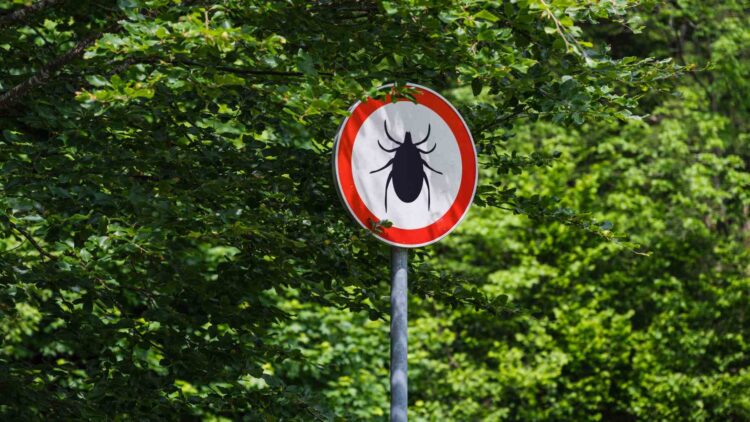With summer officially in full swing there is nothing better than enjoying the outdoors and getting some sun, but there is one drawback to the summer activities that we are looking forward to, and that is ticks. Whether we are going on a hike, out for a picnic or just laying on the grass beside a pool, these small bugs can get us and bite us, creating a whole host of unintended consequences for us and our pets.
Ticks are little parasites that cling to vegetation and then climb onto humans or animals when they brush up against the plant they live in. Once they find a host, they dig in and feed on blood for hours, sometimes going unnoticed the whole time as their bites are not particularly painful. The consequences, however, are a much different story, as prolonged feeding can cause irritation, allergic reactions, and, in some cases, even infections. But although it may seem that we are all equal opportunity targets, researchers have found that there is one group of humans that is especially vulnerable to tick bites.
The humans that are more likely to get bitten by ticks
Believe it or not, your blood type might make you more of a target for tick bites. Research suggests that ticks might favor certain blood types over others and the Lithuanian site Kaipkada has pulled together info that points at type A blood being especially attractive for these creatures.
This is not the first time that evidence surfaces pointing at creatures that suck on our blood being able to tell that different chemical signals can vary depending on your blood type. This would explain why mosquitoes and ticks prefer some people over others, and while the science has not been proven without a shadow of a doubt, the data is quite interesting and has tentatively backed it up.
But even if ticks prefer type A blood for whatever reason, there are other reasons why ticks might gravitate toward you. Just like mosquitoes, ticks are drawn to the heat your body gives off and the carbon dioxide you exhale as well as to the natural scent of your skin, shaped by bacteria unique to you. What you wear can also influence how attractive of a target you are, as dark colors or certain fabrics can make it easier for ticks to cling to you or stay hidden.
While it might seem silly to worry about this, in many parts of the world including Europe tick bites can lead to serious illnesses, like Lyme disease. This illness affects thousands of people every year and there is no real recovery, especially if it is detected late and its symptoms have been going on for a while.
Recognizing ticks and knowing where they are likely to be hiding can go a long way in keeping you safe, and so can dressing for the occasion. Light-colored clothes make it easier to spot any unwanted critters, and long sleeves and pants act as a physical barrier. Sticking marked trails when you are out walking in nature is also a good idea as these are maintained and have thinner grass or bushes that make it less attractive to ticks. Once back home give yourself a good once-over, paying extra attention to spots like behind the knees, around the ears, the neck, and groin area and if you cannot see, get a partner to help you.
If you do find a tick attached to your skin, do not panic and try to find fine-tipped tweezers. Grab it as close to the skin as possible and pull straight out and do not twist, or you risk leaving part of it behind. Afterward, clean the area with disinfectant and keep an eye out for any symptoms like fever, rashes, or unusual fatigue. If you are unsure or if the tic broke with a part attached to you, got to the hospital as soon as you can.

